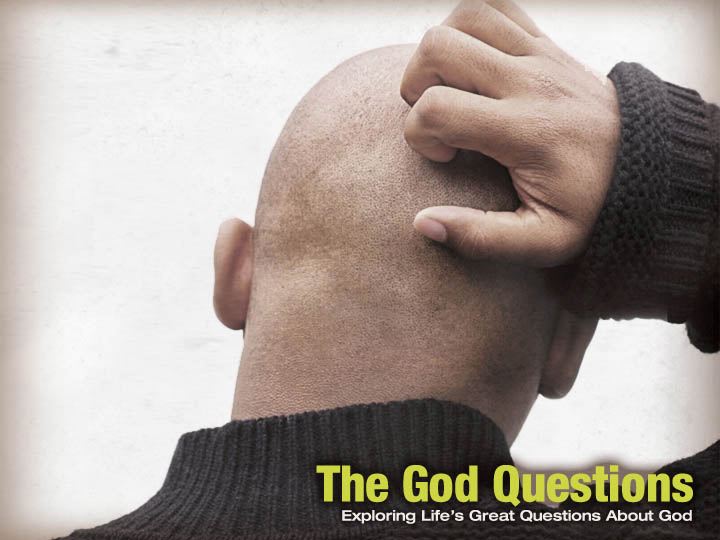Other than birth, we often think of our identities as fashioned by the transitions we accomplish, such as graduation. But what of those transitions that happen to us, such as the gift of the Holy Spirit?
Sermon for May 31.mp3
Sermons and thoughts on faith on Scripture from my time at Old Presbyterian Meeting House and Falls Church Presbyterian Church, plus sermons and postings from "Pastor James," my blog while pastor at Boulevard Presbyterian in Columbus, OH.
Other than birth, we often think of our identities as fashioned by the transitions we accomplish, such as graduation. But what of those transitions that happen to us, such as the gift of the Holy Spirit?
 My denomination has struggled for many years now over the issue of ordaining those who are in same sex relationships. As Presbyterians, we tend to argue the issue over how we interpret the Bible. People of deep faith have very different but sincerely held views on what Scripture says on this issue. That is not to say, however, that this issue arose because it figures so prominently in biblical texts.
My denomination has struggled for many years now over the issue of ordaining those who are in same sex relationships. As Presbyterians, we tend to argue the issue over how we interpret the Bible. People of deep faith have very different but sincerely held views on what Scripture says on this issue. That is not to say, however, that this issue arose because it figures so prominently in biblical texts. I've always marveled at the way Jesus answers questions posed to him. Today's "Good Samaritan" reading from Luke is a good example. (The striking contrast of the words "good" and "Samaritan" is pretty much lost on modern people who don't think of Samaritans as a despised, inferior, ethnic group.) The parable is well know, though I suspect people often forget the context. A lawyer -- that is, an authority in religious law -- asks Jesus about what one must do to inherit eternal life. Jesus simply asks this lawyer what the Law says, and quite naturally he is able to quote a good synopsis of the Law. "You shall love the Lord your God with all your heart, and with all your soul, and with all your strength, and with all your mind; and your neighbor as yourself."
I've always marveled at the way Jesus answers questions posed to him. Today's "Good Samaritan" reading from Luke is a good example. (The striking contrast of the words "good" and "Samaritan" is pretty much lost on modern people who don't think of Samaritans as a despised, inferior, ethnic group.) The parable is well know, though I suspect people often forget the context. A lawyer -- that is, an authority in religious law -- asks Jesus about what one must do to inherit eternal life. Jesus simply asks this lawyer what the Law says, and quite naturally he is able to quote a good synopsis of the Law. "You shall love the Lord your God with all your heart, and with all your soul, and with all your strength, and with all your mind; and your neighbor as yourself." Following the successful and joyful return of the 70, Jesus "rejoiced in the Holy Spirit," saying, "I thank you, Father, Lord of heaven and earth, because you have hidden these things from the wise and the intelligent and have revealed them to infants; yes, Father, for such was your gracious will."
Following the successful and joyful return of the 70, Jesus "rejoiced in the Holy Spirit," saying, "I thank you, Father, Lord of heaven and earth, because you have hidden these things from the wise and the intelligent and have revealed them to infants; yes, Father, for such was your gracious will." In today's reading from Luke, Jesus appoints seventy followers and sends them in pairs to all the towns he plans to visit. He tells them, "Whenever you enter a town and its people welcome you, eat what is set before you; cure the sick who are there, and say to them, 'The kingdom of God has come near to you.' " Those who do not welcome them are treated with disdain, although they too are told, "the kingdom of God has come near."
In today's reading from Luke, Jesus appoints seventy followers and sends them in pairs to all the towns he plans to visit. He tells them, "Whenever you enter a town and its people welcome you, eat what is set before you; cure the sick who are there, and say to them, 'The kingdom of God has come near to you.' " Those who do not welcome them are treated with disdain, although they too are told, "the kingdom of God has come near."Comedian Jerry Clower once said, "Some people are so heavenly minded, they ain't no earthly good." In today's gospel (John 17:6-19), Jesus says that his followers "do not belong to the world," but this may not mean what it seems. And Jesus may just agree with Jerry Clower.
 Today's gospel reading comes from the ending of Matthew, the story of what is often called "The Great Commission." The disciples, as instructed by the women who found the empty tomb on Easter, have gone to Galilee where they meet the risen Jesus. "When they saw him, they worshiped him; but some doubted." Jesus then proceeds to send them out to make disciples of all peoples.
Today's gospel reading comes from the ending of Matthew, the story of what is often called "The Great Commission." The disciples, as instructed by the women who found the empty tomb on Easter, have gone to Galilee where they meet the risen Jesus. "When they saw him, they worshiped him; but some doubted." Jesus then proceeds to send them out to make disciples of all peoples. I saw this Twitter post a few weeks ago from a person traveling in Africa. "Observation from Ethiopia. There is no correlation between material possessions and happiness. None." Most of us have probably heard similar things. The 1897 poem "Richard Corey" spoke of a refined, charming, wealthy man whom everyone envied who went home one evening and "put a bullet through his head." Simon and Garfunkel used the poem as the basis of a hit song. And even after Richard Corey is dead the chorus sings, "But I work in his factory, And I curse the life I'm living, And I curse my poverty, And I wish that I could be, Oh, I wish that I could be, Oh, I wish that I could be Richard Cory."
I saw this Twitter post a few weeks ago from a person traveling in Africa. "Observation from Ethiopia. There is no correlation between material possessions and happiness. None." Most of us have probably heard similar things. The 1897 poem "Richard Corey" spoke of a refined, charming, wealthy man whom everyone envied who went home one evening and "put a bullet through his head." Simon and Garfunkel used the poem as the basis of a hit song. And even after Richard Corey is dead the chorus sings, "But I work in his factory, And I curse the life I'm living, And I curse my poverty, And I wish that I could be, Oh, I wish that I could be, Oh, I wish that I could be Richard Cory." I got back into town around midnight this morning after a lot of driving and a busy weekend in Boston, all of it occasioned by my daughter's graduation from Boston University. I can't say that I have a good sense of what this year's college graduates think about the future, but I get the impression that this generation expects to do big things. I suppose that's true of all graduates, but I also think that this generation is part of big shifts on multiple fronts, from technological to political. I hear voices of optimism and idealism beyond that which simply accompanies being young. These graduates are very different from me in many ways, and they may be ready to push the Baby Boomers off the stage ( though I doubt the Boomers will go quietly.)
I got back into town around midnight this morning after a lot of driving and a busy weekend in Boston, all of it occasioned by my daughter's graduation from Boston University. I can't say that I have a good sense of what this year's college graduates think about the future, but I get the impression that this generation expects to do big things. I suppose that's true of all graduates, but I also think that this generation is part of big shifts on multiple fronts, from technological to political. I hear voices of optimism and idealism beyond that which simply accompanies being young. These graduates are very different from me in many ways, and they may be ready to push the Baby Boomers off the stage ( though I doubt the Boomers will go quietly.) This Sunday I won't be in my regular place in worship. Instead I'll be watching my daughter graduate from Boston University. (She and her classmates would greatly appreciate it if you distinguished between her school and Boston College.) And although I won't be preaching, it is interesting to hear the gospel reading for today's worship, John 15:9-17, in the context of a graduation.
This Sunday I won't be in my regular place in worship. Instead I'll be watching my daughter graduate from Boston University. (She and her classmates would greatly appreciate it if you distinguished between her school and Boston College.) And although I won't be preaching, it is interesting to hear the gospel reading for today's worship, John 15:9-17, in the context of a graduation. I'll be heading out later in the day on the long drive to Boston. This weekend I'll watch my older daughter graduate from Boston University, and so it is perhaps not surprising that I wonder about her faith life as she goes "out into the world." In my limited experience, many young people have lots of faith questions and few faith certainties. They would seem to be precisely the sort of folks who would come to congregations to explore their questions.
I'll be heading out later in the day on the long drive to Boston. This weekend I'll watch my older daughter graduate from Boston University, and so it is perhaps not surprising that I wonder about her faith life as she goes "out into the world." In my limited experience, many young people have lots of faith questions and few faith certainties. They would seem to be precisely the sort of folks who would come to congregations to explore their questions. The standard Presbyterian worship service has a "prayer of confession" right after the opening song of praise. (So do many other denominations.) The notion is that when we encounter God, we cannot help but fall on our faces, realizing how woefully undeserving we are to be in God's presence. And yet, a common complaint that pastors get about worship concerns a dislike for this prayer. "It's such a downer," one says. "I'm not that bad," says another. "Who wants to hear about sin," goes yet another complaint.
The standard Presbyterian worship service has a "prayer of confession" right after the opening song of praise. (So do many other denominations.) The notion is that when we encounter God, we cannot help but fall on our faces, realizing how woefully undeserving we are to be in God's presence. And yet, a common complaint that pastors get about worship concerns a dislike for this prayer. "It's such a downer," one says. "I'm not that bad," says another. "Who wants to hear about sin," goes yet another complaint. My theological tradition produced, among others, the Dutch Reformed Church, the French Huguenots, the Presbyterians, and those barrels of fun the Puritans. Perhaps it's a stereotype, but many of us get our image of dour religion from folks such as the Puritans. And many people imagine most Christians as having a low fun quotient. They think of religious folks as worried about making sure everyone is behaving. They imagine us to be very judgmental, and, quite naturally, tend to imagine God in the same way.
My theological tradition produced, among others, the Dutch Reformed Church, the French Huguenots, the Presbyterians, and those barrels of fun the Puritans. Perhaps it's a stereotype, but many of us get our image of dour religion from folks such as the Puritans. And many people imagine most Christians as having a low fun quotient. They think of religious folks as worried about making sure everyone is behaving. They imagine us to be very judgmental, and, quite naturally, tend to imagine God in the same way. My theological tradition, like many that came out of the Protestant Reformation, holds the Bible in very high regard. Its authority is above all others, and the Church's practices and beliefs are to be critiqued and reformed through the witness of Scripture. Not surprisingly, most of the big debates in my Presbyterian denomination are about what the Bible says, or more precisely, what it means.
My theological tradition, like many that came out of the Protestant Reformation, holds the Bible in very high regard. Its authority is above all others, and the Church's practices and beliefs are to be critiqued and reformed through the witness of Scripture. Not surprisingly, most of the big debates in my Presbyterian denomination are about what the Bible says, or more precisely, what it means.In the Law given to Israel at Mt. Sinai, eunuchs are banned from being a part of "the assembly of Yahweh." Yet God's amazing and surprising love reaches out to a eunuch in today's reading from Acts 8:26-40. God's love in Jesus regularly shatters the boundaries that we think are sacrosanct .
Sermon, 5-10.mp3 One of today's psalms, Psalm 148, is one of those Let everything praise the LORD psalms. Angels, sun, moon, stars, waters, sea monsters, hail, snow, mountains, trees, wild animals, birds, kings, princes, men, women, young, and old are all called to praise Yahweh. It is an extravagant explosion of praise, and the psalmist clearly thinks that such an extravagant explosion is natural, an obvious reaction in gratitude for all that God has done.
One of today's psalms, Psalm 148, is one of those Let everything praise the LORD psalms. Angels, sun, moon, stars, waters, sea monsters, hail, snow, mountains, trees, wild animals, birds, kings, princes, men, women, young, and old are all called to praise Yahweh. It is an extravagant explosion of praise, and the psalmist clearly thinks that such an extravagant explosion is natural, an obvious reaction in gratitude for all that God has done. Two very different newspaper columns caught my attention this morning. In the first, Miami Herald columnist Leonard Pitts, Jr. wrote about how people of faith were more likely to support torturing terror suspects than those with no religious affiliation. And he noted how non-Christians are often the ones who take hard or dangerous stands rooted in moral principle while many Christians choose to remain silent. Think German Christians during the Holocaust, or white, Southern Christians during the Civil Rights era.
Two very different newspaper columns caught my attention this morning. In the first, Miami Herald columnist Leonard Pitts, Jr. wrote about how people of faith were more likely to support torturing terror suspects than those with no religious affiliation. And he noted how non-Christians are often the ones who take hard or dangerous stands rooted in moral principle while many Christians choose to remain silent. Think German Christians during the Holocaust, or white, Southern Christians during the Civil Rights era.
 Luke's version of the Beatitudes has never been as popular as the one found in Matthew. Not only are the poor simply the poor, not the "poor in spirit," but there is a corresponding list of woes. Here is a portion of today's gospel. "Blessed are you who are poor, for yours is the kingdom of God. Blessed are you who are hungry now, for you will be filled. Blessed are you who weep now, for you will laugh... But woe to you who are rich, for you have received your consolation. Woe to you who are full now, for you will be hungry. Woe to you who are laughing now, for you will mourn and weep."
Luke's version of the Beatitudes has never been as popular as the one found in Matthew. Not only are the poor simply the poor, not the "poor in spirit," but there is a corresponding list of woes. Here is a portion of today's gospel. "Blessed are you who are poor, for yours is the kingdom of God. Blessed are you who are hungry now, for you will be filled. Blessed are you who weep now, for you will laugh... But woe to you who are rich, for you have received your consolation. Woe to you who are full now, for you will be hungry. Woe to you who are laughing now, for you will mourn and weep." Today's reading from Luke 6 features two episodes where Jesus upsets people by violating the Sabbath laws. Nearly 2000 years removed from these events, it is easy to dismiss these Sabbath regulations as petty legalism, but keeping the Sabbath had helped define and preserve Judaism through some very difficult times. During the exile in Babylon, with the Temple destroyed and all religous activity associated with it impossible, the keeping of Sabbath became the primary way that these exiles maintained their Jewishness. And in a world that as yet knew nothing of weekends, Sabbath keeping was a public faith statement.
Today's reading from Luke 6 features two episodes where Jesus upsets people by violating the Sabbath laws. Nearly 2000 years removed from these events, it is easy to dismiss these Sabbath regulations as petty legalism, but keeping the Sabbath had helped define and preserve Judaism through some very difficult times. During the exile in Babylon, with the Temple destroyed and all religous activity associated with it impossible, the keeping of Sabbath became the primary way that these exiles maintained their Jewishness. And in a world that as yet knew nothing of weekends, Sabbath keeping was a public faith statement.The sheep become one flock, not because of anything the sheep do, but because the Good Shepherd, who lays down his life for the sheep, calls. All who recognize his voice, be they rich or poor, black or white, young or old, are the flock.

